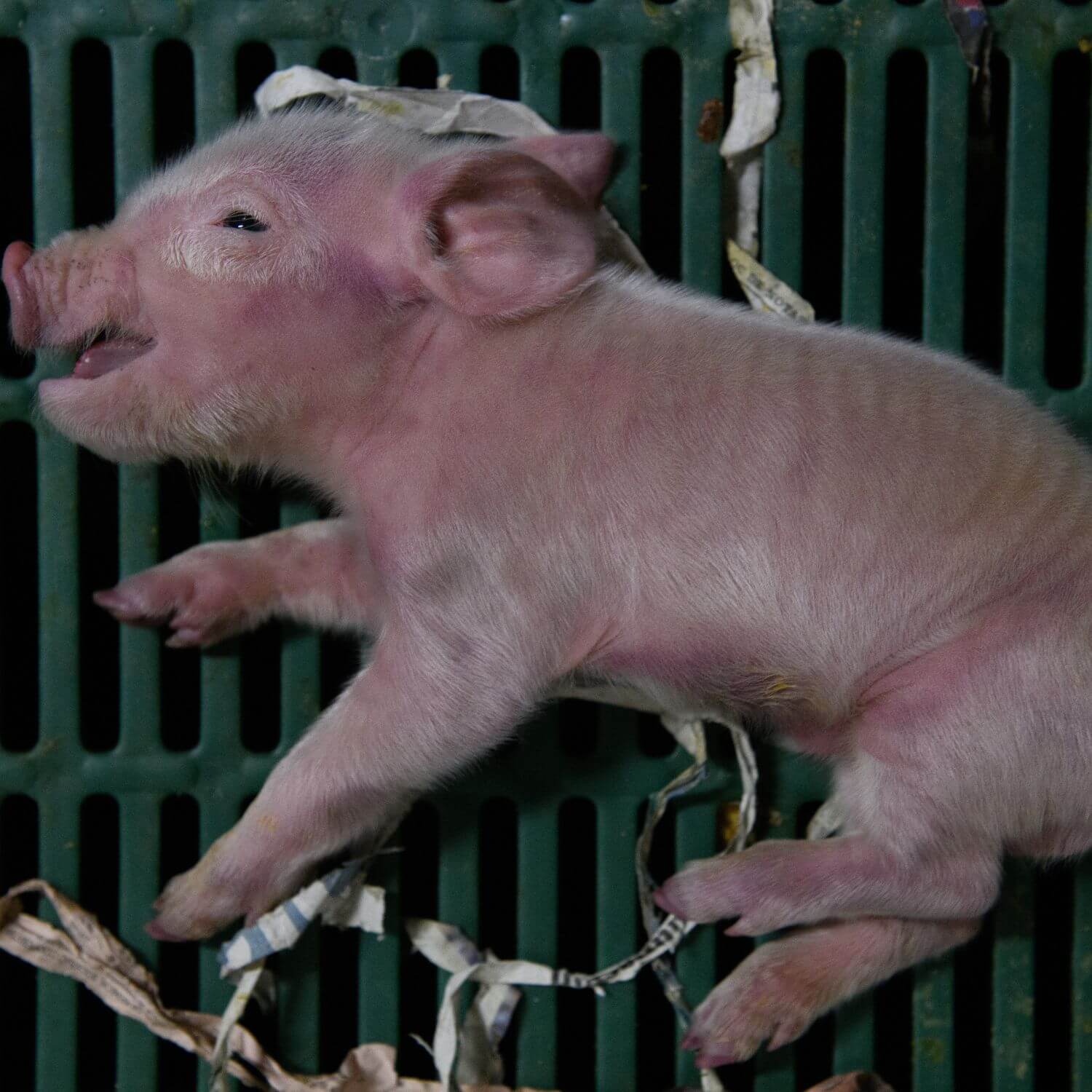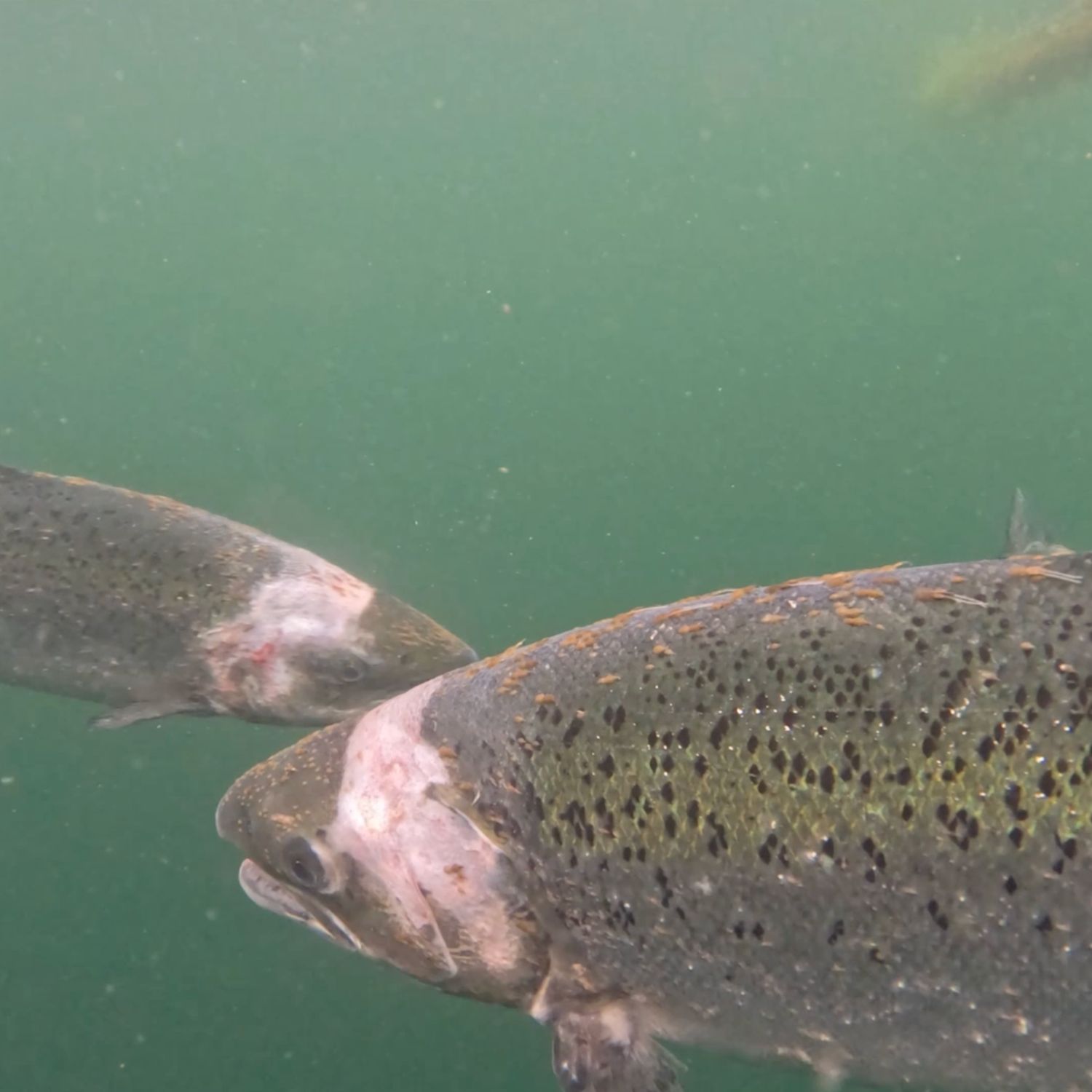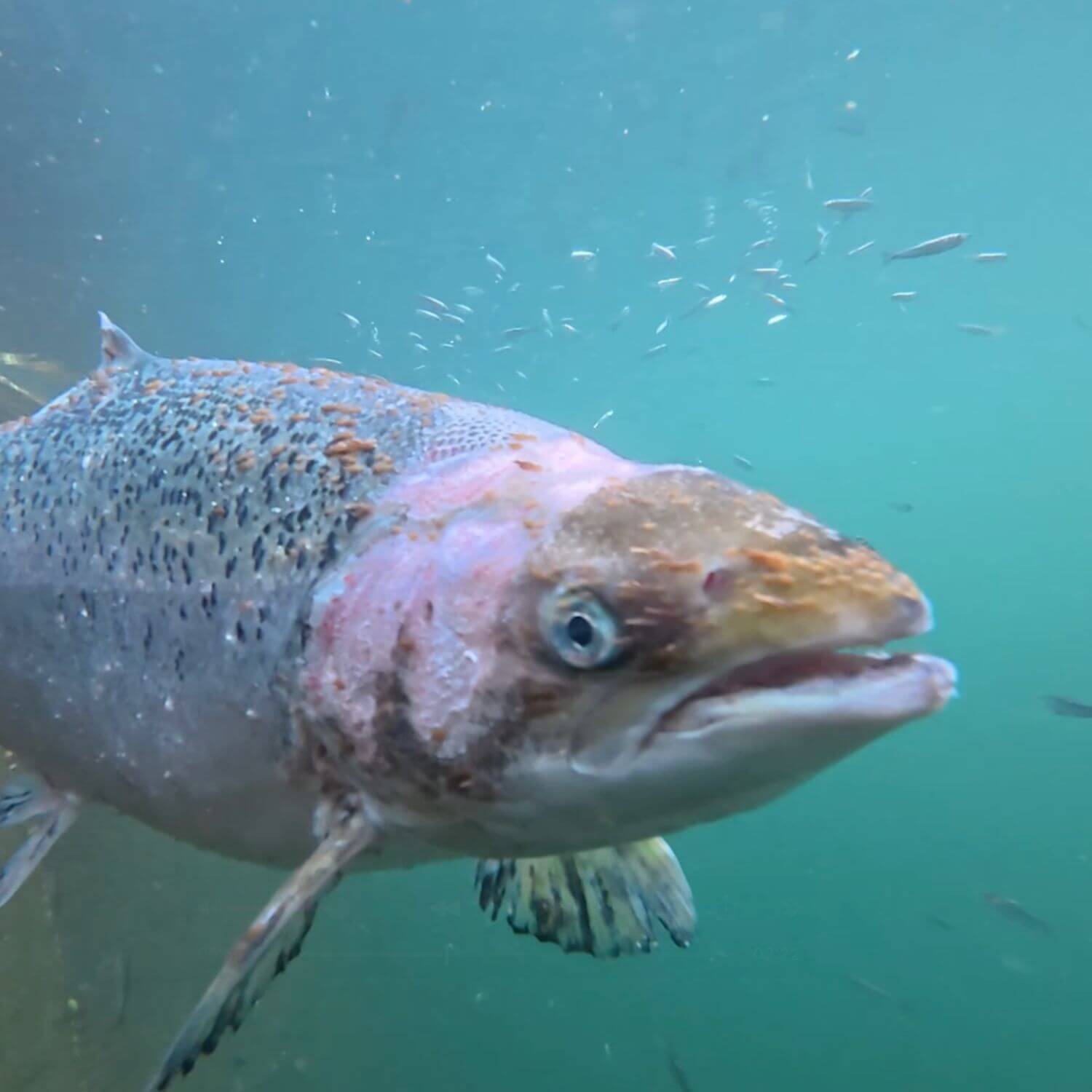Animal Equality Brazil exposes alarming consequences of the Self-Control law in Brazil
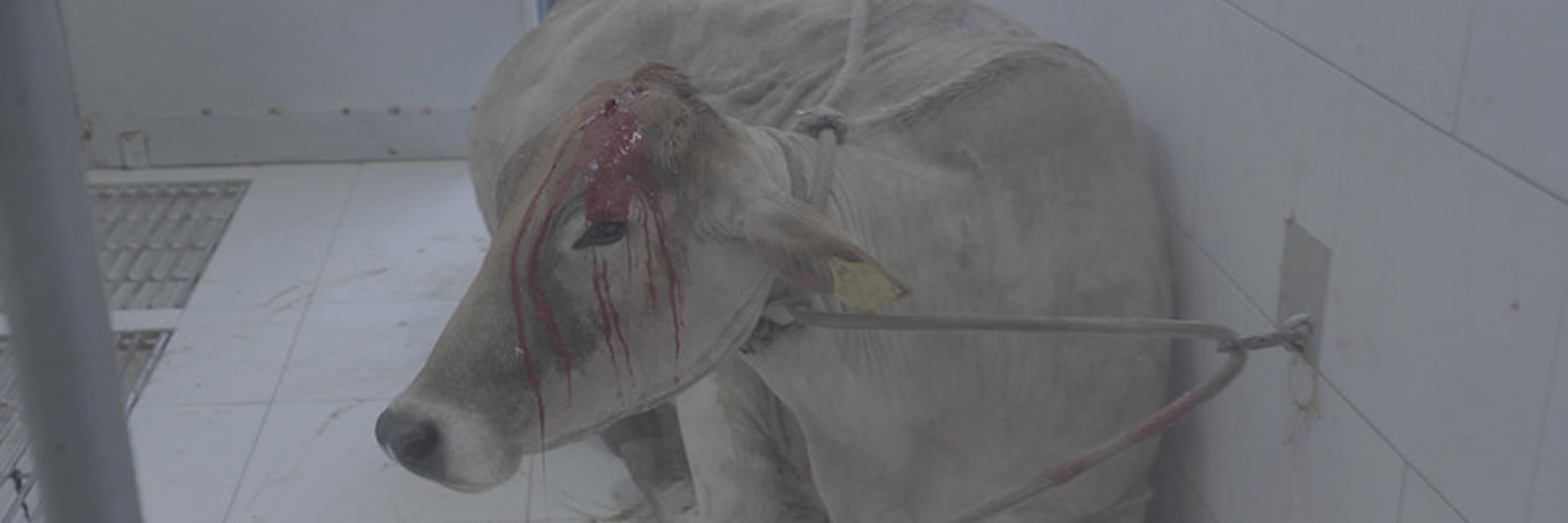
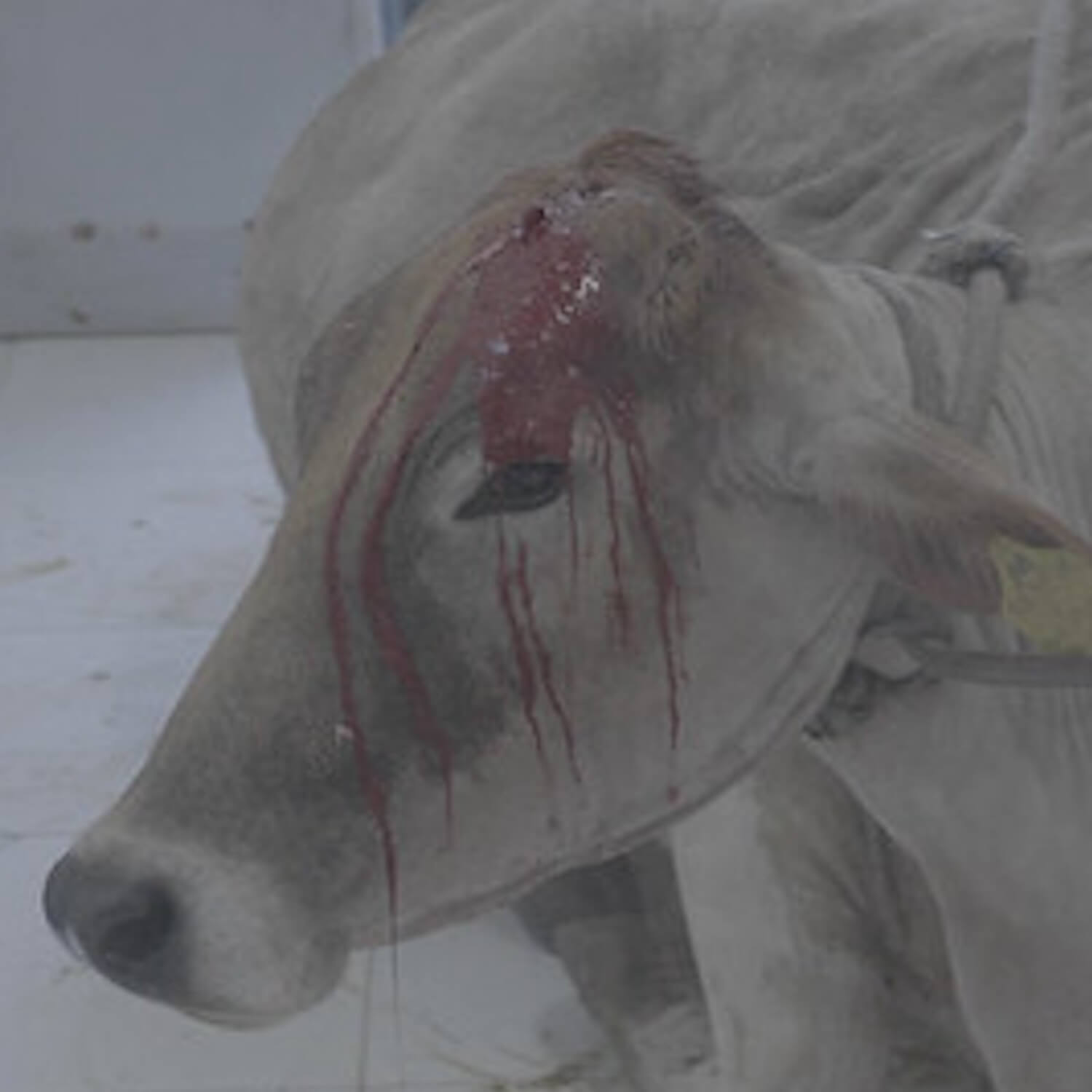
What is the Self-Control Law (Law 14.515/2022)?
In 2022, despite strong opposition from Animal Equality and other organisations, Brazil passed a controversial law removing government oversight from slaughterhouses. Known as the Self-Control Law, it shifts responsibility for inspections from government inspectors to private agents, allowing the meat industry to regulate itself.
This self-regulation has opened the door to fraud, increased the risk of zoonotic diseases and food contamination, and worsened animal cruelty. Investigations by Animal Equality reveal how the absence of government oversight leads to neglect of even the most basic animal welfare standards, exacerbating the pain millions of animals face during slaughter.
Workers prioritise speed in the slaughter process, disregarding animal welfare protocols and completely ignoring the suffering of animals that are not properly stunned. As a result, these animals have their limbs and skin removed while still alive and conscious, enduring extreme pain and suffering. Workers who intentionally cause pain to animals are not reprimanded, normalising such cruelty. Investing in oversight is essential to reverse this situation and protect both the population and animals.
Anonymous Investigator
Key violations related to animal welfare found in the 2022 and 2024 exposes
Animal Equality’s investigations in 2022 and 2024 revealed violations in slaughterhouses across multiple Brazilian states, including São Paulo, Minas Gerais, and Pará. In 2022, the lack of inspectors was due to staffing shortages, but by 2024, it was directly tied to the Self-Control Law. Without government oversight, slaughterhouses managed their own sanitary and animal welfare protocols, leading to widespread abuse:
Intentional cruelty by workers:
- Twisting animals’ tail and kicking them in the face
- Application of prolonged and high-frequency electric shocks to sensitive areas like the head, tail and genitals
Inadequate facility conditions
- Overcrowded pens
- Animals left under intense sunlight and high temperatures without access to shade or water
- Improper flooring causing animals to slip and fall
Improper stunning
- Stunning compromised due to improper restraint systems and ropes being tied around animals’ necks as an alternative
- Defective and misused equipment caused ineffective stunning, with recurring failures
- Animals endured multiple attempts to be stunned, including one instance where a single animal was shot seven times without success
Excessive time between stunning and bleeding
- Animals waited over two minutes before bleeding after an attempt to stun them, exceeding the legal limits of 30-60 seconds, depending on the method
Mutilations performed on live animals
- Animals had their skin removed and limbs cut off before death was confirmed, often before the legally required three minutes after bleeding began. This was made worse by inadequate stunning, leaving animals conscious and enduring extreme pain and suffering during these mutilations
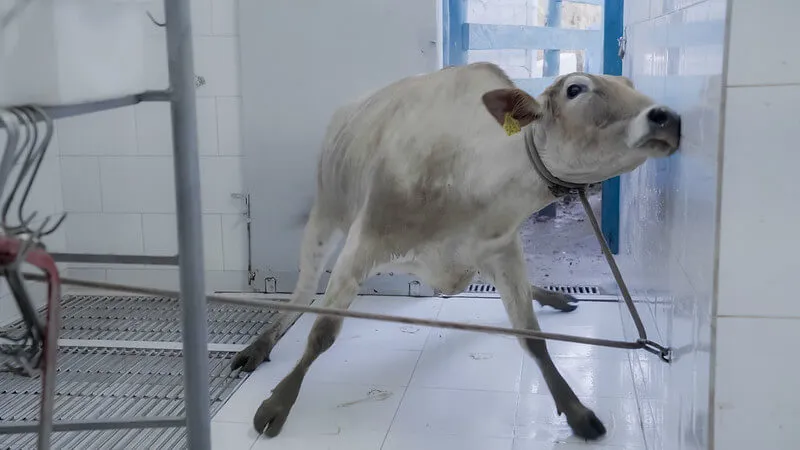
Actions taken
Since 2022, Animal Equality has been advocating against the Self-Control Law through:
- Ongoing investigations: Exposing severe violations in slaughterhouses across three different states in 2022 and 2024.
- Social mobilisation: Gathering 58,000 petition signatures and sending letters signed by 38 organisations to lawmakers.
- Political advocacy: Participating in public hearings and debates in the Senate and submitting technical notes to the federal government. This delayed the law’s approval by six months – an achievement, though insufficient to address the issues within the legislation.
- Judicial action: Participating as amicus curiae in a Direct Action of Unconstitutionality (ADIN) filed with the Supreme Federal Court (STF). This action, initiated by the National Confederation of Food Industry Workers (CNTA), aims to reverse the law’s negative impacts on worker health.
The findings of this new investigation make it clear that the Self-Control Law fails to protect animal welfare and public health. By transferring inspection responsibilities to private agents, we are witnessing a weakening of control mechanisms, exposing animals to mistreatment and putting consumers at risk. It is crucial that society pressures authorities to address this legislative failure before the impacts become irreversible.
Carla Lettieri, Executive Director of Animal Equality Brazil
Brazil is not alone
While Brazil has effectively legalised the self-regulation of slaughterhouses, the enforcement of slaughter laws in the UK is far from adequate. Our exposés have shown breaches of laws, including when Government inspectors are on-site. In the UK, we have shown fish ineffectively stunned having their gills painfully cut while still fully conscious. We have also revealed disturbing footage showing sheep painfully trapped in machinery, even having their heads cut off in front of each other – shocking events that, in some cases, occurred under the watch of an inspector.
The truth is undeniable: the only food free from animal cruelty is plant-based. At Animal Equality UK, we’re committed to tackling this issue at its core—the profits of industries built on exploitation. That’s why this year, we’re ramping up our Love Veg campaign and pushing for bold changes to the National Food Strategy. By encouraging a shift away from meat, milk, fish, and eggs, we can reduce demand and take a stand against the systemic cruelty inflicted on animals.
But we can’t do it without your help. With your support, we can continue to inform the public, advocate for legislative change, and inspire more people to embrace plant-based products. Together, we can fight for a future where no animal suffers for human consumption.
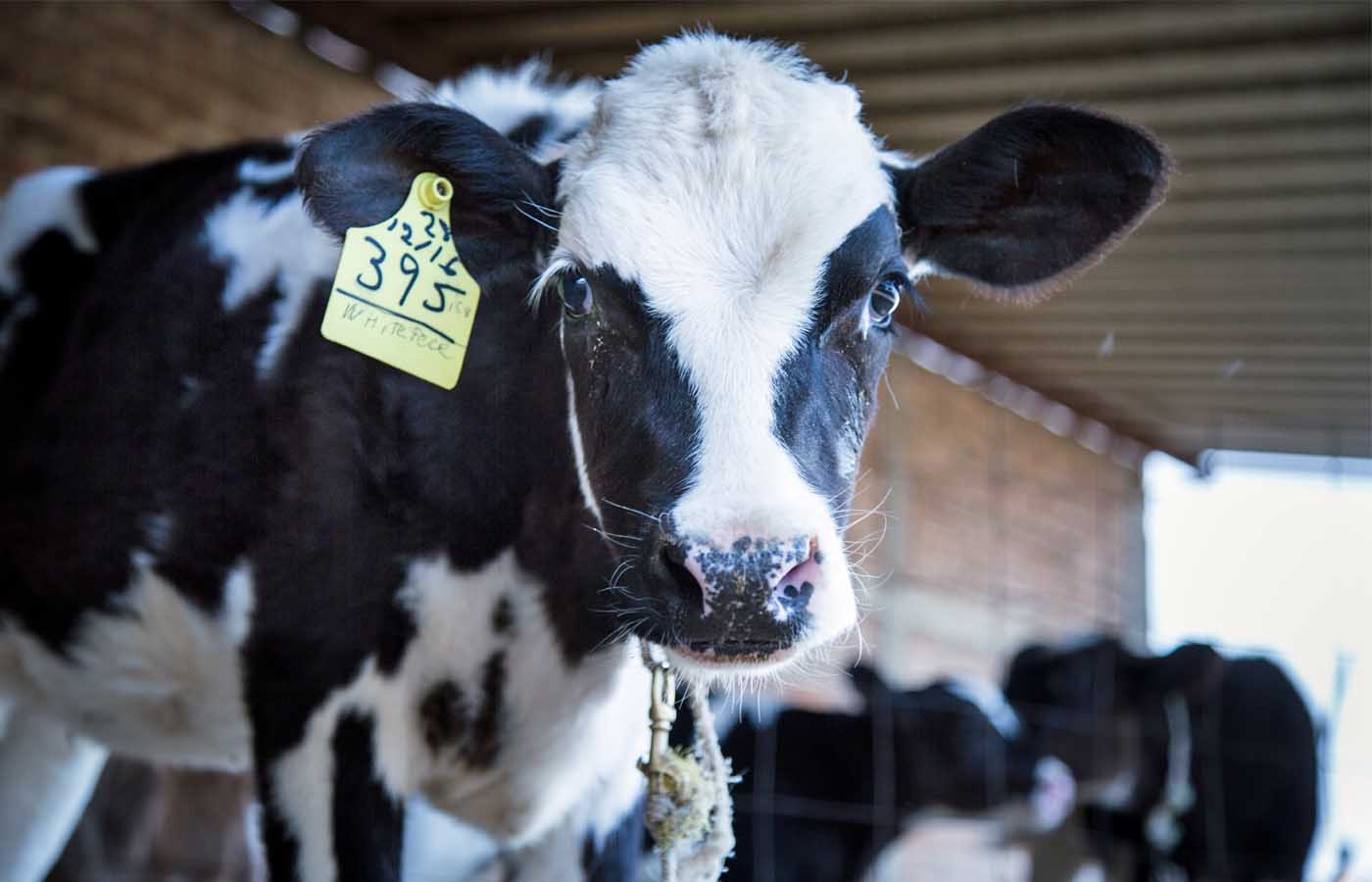
Protect cows and calves
Every day mother cows are separated from their newborn calves, just so milk can appear on the shelves of supermarkets. Protect cows by choosing plant-based dairy alternatives.

